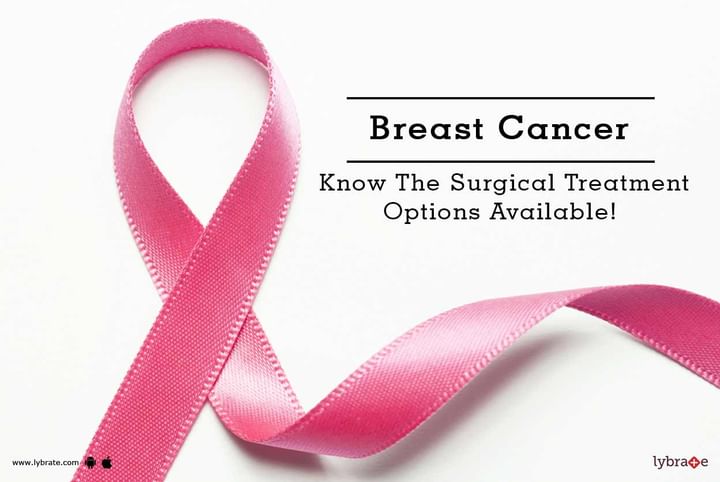Get the App
For Doctors
Login/Sign-up
Last Updated: Oct 23, 2019
BookMark
Report
Breast Cancer - Know The Surgical Treatment Options Available!
Dr. Hemant GoyalOncologist • 25 Years Exp.MBBS Bachelor of Medicine and Bachelor of Surgery, MS - General Surgery
Treatment for breast cancer depends on the type of cancer, hormone sensitivity, size, grade and stage of cancer. A doctor considers the overall health of the patient and the patient’s individual preference before recommending a treatment plan. While there are many treatments options available for breast cancer, surgery is by far the most popular option for most patients. Along with surgery, some other treatments that a patient undergoes include radiation, chemotherapy and hormonal therapy.
Surgery options:
- Lumpectomy: This is a procedure wherein the surgeon cuts the tumour and removes some of the surrounding healthy tissue in order to ensure that cancer does not spread to the healthy cells after the surgery. This procedure is applicable for small tumours.
- Mastectomy: This is a procedure in which all tissues of the breast are removed. This includes lobules, fatty tissue, ducts, areola, and nipple. In a skin-sparing mastectomy, all of the breast skin, except the nipple and the areola, is preserved, which makes the reconstruction process easier.
- Sentinel node biopsy: Since the sentinel lymph nodes are the first place that cancer is likely to spread, a doctor might suggest a sentinel node biopsy if cancer has spread to the lymph nodes. If no trace of a cancer cell is found in the nodes, it is unlikely that any more nodes need to be removed.
- Removal of breasts: Many women who have cancer in one breast often choose to remove both the breasts in order to avoid the risk of cancer spreading. While a family history of breast cancer can greatly increase the chance of breast cancer in a woman, statistics show that most women who have cancer in one breast do not develop cancer in the other one.
- Radiation: This is a process where a high-powered beam of energy is directed at the cancer cells to kill them. This method is often used after a lumpectomy. Radiations are of two types—external beam and brachytherapy. Some side effects of this treatment include fatigue, hair fall, loss of appetite and rashes.
- Chemotherapy: Chemotherapy is the treatment of cancer by cytotoxic and other drugs. This is often recommended by doctors when there is a good chance of the cancer cells spreading to other locations of the body. This form of treatment is often recommended before the surgery to shrink a tumour or restrict the growth of cells.
- Hormone therapy: Hormonal therapy is used to treat cancers that have hormonal sensitivity. They can be used before or after the surgery in order to ensure that cancer does not reoccur. Some of the treatment methods in this section include medication that restricts hormones from getting attached to the cancer cells, medications that restrict the body to produce oestrogen post-menopause and medication that destroys cancer receptors.
In case you have a concern or query you can always consult a specialist & get answers to your questions!



+1.svg)
